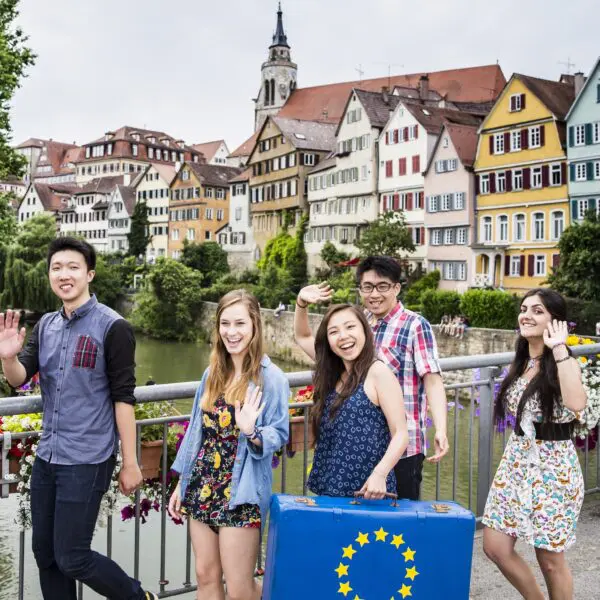
Rhodes, Greece
Summer School 2025 “Small Acts. Big Impact”
When:
18 September - 16 October 2025
Credits:
0 EC
Read more
Social Sciences
When:
07 July - 18 July 2025
School:
Institution:
Maastricht University
City:
Country:
Language:
English
Credits:
3 EC
Fee:
899 EUR

This course aims to provide a thorough analysis of the important issues and processes related to China's politics and international relations. It focuses on developments since the end of the Cold War, with a particular emphasis on China's economic, political, military, and cultural growth and its implications for international politics up to the present day. In 1989, protesters gathered in Tiananmen Square to demand greater political rights. At that time, many Western observers believed China would follow the same path as the Soviet Union and collapse. However, the Chinese Communist Party (CCP) continued to hold power and negotiated to end the Cold War, laying the foundation for China's rise as a world power. Today, China has successfully integrated into the world economy and played an important political role. But despite this success, China is seen as a ‘fragile superpower’ due to its vulnerability to domestic and international pressures. The CCP's lack of legitimacy, as it is not based on an electoral/democratic system, has been a concern for many Western scholars, journalists, and observers. The riots and protests in Tibet in 2008, Xinjiang in 2009, Hong Kong in 2014 and 2019, and the outbreak of the coronavirus in 2020 have all, to some extent, confirmed these concerns. Meanwhile, the ascent of China is perceived by many as a threat to the stability of the current world order. There is a concern among foreigners that the country's swift development could disrupt the Indo-Pacific region. The military and political tensions between China and Taiwan, coupled with China's historical animosity towards Japan, add to the apprehension.
Moreover, China's continued land reclamation activities on disputed islands in the South China Sea have raised concerns. Several Western countries, including the United States, are apprehensive about relinquishing their dominance and often anticipate the emergence of China as a global power. Given the current state of affairs, the global political landscape may soon undergo a significant transformation. With the rise of the global South, the global markets are in a state of turmoil, supply chains widely affected by the U.S.-China trade and tech/chip war, the outbreak of COVID-19, the Ukraine war, the Gaza war and most recently, the reflection of Donald Trump in 2024, there is a possibility of an alteration in the international political order. This raises several questions, such as how exactly the international order will change, whether we are moving away from the U.S.-centric world order to a more China-centric world order, and in what ways.
Furthermore, what would a world order centred on China entail? This course aims to provide a comprehensive analysis of China's ascent, drawing insights from IR and political theory.
The course is divided into three parts, consisting of 12 sessions in total.
Huang Jay Hwang
This course specialises in politics and international relations. Prior to taking this course, students should have a good understanding of the major theories of international relations, such as realism, liberalism, and constructivism, as well as the fundamental concepts of international relations, such as power and sovereignty.
Throughout this course, students will acquire a range of theoretical, methodological, and analytical skills that will enable them to effectively interpret fundamental issues in China's politics and international relations. By the completion of the course, each student is expected to have developed the following skills:
• Understanding of Chinese Politics and International Relations
• Critically identify and discuss key issues surrounding the history and development of China’s politics and international relations.
• A critical awareness of the key debates concerning the rise of China.
• Knowledge of International Relations Theories and Its Applications
• Critically reflect upon key theories and concepts of IR theories using a variety of case studies related to Chinese politics and international relations.
• Apply conceptual tools to analyse key events and processes in Chinese politics and international relations.
• Intellectual Skills: Demonstrate appropriate cognitive, communicative, and transferable skills, develop the capacity for independent learning, critique major texts on Chinese politics and international relations, and participate in class debates.
• Display the confidence to present their arguments in relevant academic contexts (seminars, workshops, conferences) for specialists in IR of China.
Fee
899 EUR, Tuition fee
When:
07 July - 18 July 2025
School:
Institution:
Maastricht University
Language:
English
Credits:
3 EC

Rhodes, Greece
When:
18 September - 16 October 2025
Credits:
0 EC
Read more

Lugano, Switzerland
When:
21 August - 23 August 2025
Credits:
1 EC
Read more

Tübingen, Germany
When:
01 August - 29 August 2025
Credits:
8 EC
Read more